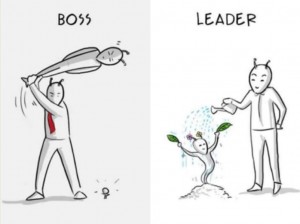Οι λόγοι που ένας καλός εργαζόμενος αποφασίζει να αλλάξει επαγγελματικό περιβάλλον μπορεί να είναι πολλοί, ωστόσο τις περισσότερες φορές, μπορεί να σχετίζονται με το εργασιακό περιβάλλον ή ακόμη και την αλλαγή των στόχων στην επαγγελματική του πορεία.
Αναλυτικά, ένας καλός εργαζόμενος μπορεί να οδηγηθεί στην παραίτηση εξαιτίας των παρακάτω αιτιών:
1. Η ασέβεια και η μείωση των ικανοτήτων του προσωπικού απ’ τον εργοδότη
Δεν υπάρχει πιο άσχημο πράγμα για έναν εργαζόμενο απ’ το να αντιμετωπίζεται από τον εργοδότη σαν ένας ακόμη τροχός στη μηχανή του ή σαν ένα ακόμη νούμερο στην εταιρία με το πολυάριθμο προσωπικό. Πράγμα που συμβαίνει όταν οι εργοδότες ενδιαφέρονται μόνο για την επιτυχία της επιχείρησης τους και όχι για το ανθρώπινο δυναμικό, που θα κάνει την επιτυχία εφικτή.
Έτσι, πολλές φορές ο εργοδότης μπορεί να χάσει την ψυχραιμία του και να δείξει την άσχημη πτυχή του χαρακτήρα του στους εργαζομένους, ξεχνώντας πως κ’ εκείνοι είναι άνθρωποι με ελαττώματα, ανησυχίες και προβλήματα.
Αν, λοιπόν, το προσωπικό αντιμετωπίζεται άσχημα ή ανταμείβεται με ψίχουλα δεν έχει καμία διάθεση να παράγει και να οδηγήσει την επιχείρηση στην επιτυχία. Το αποτέλεσμα σε τέτοιες περιπτώσεις είναι να αναζητήσει αλλού επαγγελματική στέγη.
2. Δεν υπάρχει επαγγελματική εξέλιξη
Οι εργαζόμενοι δεν θέλουν να κάνουν κάθε μέρα το ίδιο πράγμα για το υπόλοιπο της ζωής τους. Αυτό που πρέπει να κάνει ο εργοδότης είναι να προσφέρει συνεχώς ευκαιρίες εξέλιξης στην καριέρα του με διάφορα σεμινάρια και επιμορφωτικά προγράμματα, ώστε ο εργαζόμενος να αισθάνεται ότι κάθε μέρα που περνά μαθαίνει και κάτι καινούργιο για τη δουλειά του.
Οι ικανοί υπάλληλοι θέλουν να επεκτείνουν τις ικανότητές τους και αναζητούν την εποικοδομητική κριτική που θα τους βοηθήσει να αναζητήσουν νέες προοπτικές.
3. Η ανισότητα
Η ανισότητα εντός του εργασιακού χώρου είναι απαράδεκτη, γι’ αυτό και οι εργαζόμενοι που τη βιώνουν επιλέγουν την παραίτηση. Μπορεί κάποτε η ανισότητα να αποτελούσε “νόμο” στον εργασιακό χώρο, επειδή όμως οι καιροί έχουν αλλάξει είναι ελάχιστοι εκείνοι που θα δεχθούν να εργαστούν σ’ ένα περιβάλλον που η διακρίσεις και ο σεξισμός επικρατούν.
Είναι σημαντικό το εργασιακό περιβάλλον να είναι ελαστικό και να μπορεί να διαμορφώνεται σύμφωνα με τις ανάγκες των εργαζομένων του. Σε περίπτωση που κάτι τέτοιο δεν συμβαίνει οι εργαζόμενοι θα αναζητήσουν αλλού επαγγελματική στέγη.
4. Χαμηλό Ηθικό
Όταν οι άνθρωποι δεν είναι ευχαριστημένοι στη δουλειά τους είναι θέμα χρόνου να την εγκαταλείψουν. Πολλές φορές οι άνθρωποι που δεν είναι ικανοποιημένοι από την εργασία τους γίνονται κυνικοί, αγενείς και αντιπαραγωγικοί. Οι συνέπειες της δικής τους δυστυχίας επηρεάζουν ολόκληρη την ομάδα και την υγιή συνύπαρξη των εργαζομένων.
Σ’ ένα υγιές εργασιακό περιβάλλον υπάρχει αλληλοκατανόηση και αλληλοβοήθεια μεταξύ των εργαζομένων, που καταβάλλουν προσπάθειες για να πετύχουν τους κοινούς τους στόχους .
5. Δεν αναγνωρίζουν την προσπάθεια των εργαζομένων και δεν τον ανταμείβουν
Επειδή, σε όλους αρέσει να αναγνωρίζονται οι κόποι τους, είναι σημαντικό ο μάνατζερ ή ο εργοδότης να ευχαριστεί τους υπαλλήλους του ή τουλάχιστον να δείξει ότι αναγνωρίζει τις προσπάθειές τους.
Όταν, λοιπόν, ένας υπάλληλος εργάζεται σκληρά απαιτεί να υπάρξει αναγνώριση και ανταμοιβή των κόπων του, για να συνεχίζει τη σκληρή δουλειά. Σε διαφορετική περίπτωση θα επικρατήσει δυσφορία και θα τον κάνει να αναζητήσει άλλες ευκαιρίες καριέρας.
6. Αποθάρρυνση του ενθουσιασμού
Ένας ικανός και ταλαντούχος υπάλληλος είναι πραγματικά παθιασμένος με το αντικείμενο απασχόλησής του. Ένας καλός εργοδότης οφείλει να τους παρέχει τη δυνατότητα να κυνηγήσουν το πάθος τους, χωρίς να τους εγκλωβίζουν σ΄ένα “κουτί”.
Ωστόσο, κάτι τέτοιο δεν είναι πάντα εφικτό, μιας και τα αφεντικά θέλουν τους εργαζόμενους να είναι επικεντρωμένοι σ’ αυτό που κάνουν, αυτό γιατί φοβούνται πως η παραγωγικότητα θα πέσει αν αφήσουν τους υπαλλήλους να κυνηγήσουν το πάθος τους. Αντίθετα, όμως, έρευνες έχουν δείξει πως οι άνθρωποι που έχουν τη δυνατότητα να κυνηγήσουν το πάθος τους στη δουλειά, βιώνουν μια κατάσταση ευφορίας που τους κάνει πέντε φορές πιο παραγωγικούς.
7. Προώθηση λάθος ανθρώπων
Οι ικανοί υπάλληλοι επιθυμούν να συνεργάζονται με παρόμοιους επαγγελματίες. Όταν, λοιπόν, οι εργοδότες επιλέγουν να προωθήσουν τους λάθος ανθρώπους, συνηθίζουν να γίνονται αντιπαραγωγικοί και χάνουν το ενδιαφέρον τους για τη θέση που κατέχουν.
Αντίθετα, όταν, ο εργοδότης δεν κατανοεί την τεράστια προσπάθεια που καταβάλει στη δουλειά και τελικά αναγνωρίζει κάποιον που έφτασε χωρίς κόπο στην κορυφή, είναι απίστευτα προσβλητικό. Δεν είναι να απορεί κανείς που φεύγουν οι καλοί υπάλληλοι.
8. Ιεραρχία αντί αυτονομίας
Όταν η ιεραρχία γίνεται πιο σημαντική από την αυτονομία, τότε η αποτυχία είναι δεδομένη λένε οι έρευνες. Ένας εργαζόμενος πρέπει να έχει την ελευθερία να επιλέγει πιο είναι το αντικείμενο που του αρέσει να ασχολείται περισσότερο, καθώς έτσι θα είναι περισσότερο αποδοτικός.
πηγή news247.gr
There are many reasons why people change jobs. These days, it is uncommon for someone to get a job and stick with it for the rest of their life. There are many opportunities and our lives are filled with diversity and flexibility. However, there are often patterns to why people decide to move on from what seemingly is ideal employment — and it isn’t just about the money or the location.
Here are eight common reasons why someone might quit their job.
1. Disrespected and undervalued staff
When you are treated like just a cog in the wheel and you feel like just another number, you feel dehumanized and worthless. Sometimes, employers are only concerned about profits, output, pleasing stakeholders, and productivity. These factors are certainly important for a successful business venture, but they are impossible to achieve if the people doing the work are being mistreated.
Staff are human beings. Workers are people and they need to be given dignity and motivation to be productive. The outcome is just as much about them as it is about the consumer or investor. If staff are underpaid, not provided with flexible work practices, and not given adequate benefits or a safe, healthy, and enjoyable working environment, they are likely to quit. Staff retention is underrated, and a lot of expertise is lost when experienced people are pushed out of their jobs through sheer neglect.
2. No career progression
People no longer want to just do the same thing day in and day out for the rest of their lives. They want to feel as though they are learning and progressing in their careers. Staff expect to be trained and educated so they can build their skills and experience. They want to grow with the organization they work for and to have something to show for their years of hard work. They want variety and excitement and they want to be challenged. If a job provides no opportunity for career progression, chances are workers will quit and seek greener pastures with better opportunities elsewhere.
3. Inequality
If a workplace still seems as though it’s in another decade in terms of its employment practices and policies, staff are likely to quit even before their first year is complete. Nobody wants to work in an environment that is sexist, racist, ageist, or discriminatory in any way. Times have changed. The human race has intellectually evolved, and when inequality is rife in a workplace, staff retention is difficult. Workplaces need to adapt to individual needs and allow for diversity and flexibility. People no longer tolerate workplaces that harbor an outdated culture. Even if people choose to stay in these workplaces, or have little other choice, that business or endeavor is guaranteed to fail and will not be able to compete with more progressive and evolved workplaces.
4. Low morale
When people are generally unhappy in a workplace, it is evident the minute you walk through the door. People are cynical, impolite, and will find any excuse to avoid being productive. There are no consequences for poor productivity or incomplete and incompetent service, and eventually people start looking for an exit strategy.
Team building and union among workers are vital components to the success of any workplace, and individuals on every level need to genuinely care about each other and the common goals of the workplace. When there is a breakdown in communication and a feeling of futility in putting in any effort at work, nobody wants to be there anymore. This is the perfect reason for someone to quit their job before the workplace starts to have an adverse effect on their health.
5. No recognition or reward
Everyone needs a pat on the back every now and then. Sometimes, a kind word of thanks or just being acknowledged for the effort you put in is enough. You don’t need to receive a gold trophy or fat bonus check to feel like you are being appreciated — however, incentives can go a long way towards giving people motivation and a feeling of purpose. If you have never been thanked or noticed in a job, you are likely to feel invisible and worthless. Deciding to quit can be the easiest option.
6. Discouraging enthusiasm
Innovation and ideas are the heartbeat of an organization, and everyone should be given a chance to show initiative. Some workplaces are incredibly resistant to change, even if those changes will mean a vast improvement in work practices or productivity. People will often start a job with positive energy and idealism, which is quickly thwarted by a management that is stale and lacks vision. When your enthusiasm is constantly diminished, you not only avoid taking risks and trying new things, you become jaded and are further enticed to quit and find something new.
7. Promoting the wrong people
Some workplaces develop a culture of rewarding the wrong people. There’s a saying that good bosses will hire people that are smarter than them. This is never the case when a boss has a big ego and feels threatened by anyone who shows intelligence and ability. What tends to happen is that people are promoted for their ability to be invisible and submissive rather than innovative and competitive. This protects the power structure rather than developing a system that has efficiency, capability, and professionalism as its goal.
8. Hierarchy instead of autonomy
When the hierarchy is more important than the value of each and every person contributing to a pursuit, a workplace not only loses excellent opportunities for wisdom and sound judgement, but also crushes self reliance and vital decision-making skills in its workers.
Strong leadership in a workplace should empower its staff to be self reliant and conscientious for the greater good of the business. Power struggles and mind games only work against the common goal and contribute to a toxic workplace. Staff will quit by the dozens when they are infantilized and feel that they can’t be trusted to make even the most basic choices by themselves, having to get permission for every move they make. It is lazy and uneducated leadership that forces good workers to quit dysfunctional workplaces.
Featured photo credit: Healthy Society via facebook.com
Πηγή www.lifehack.org/



